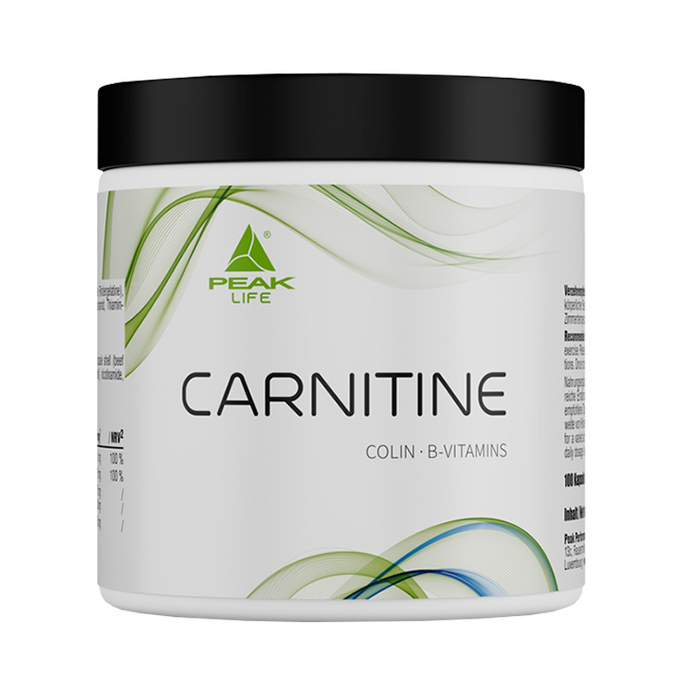Carnitine is one of the most important amino acids for athletes and is involved in numerous bodily functions, such as fat metabolism.
Peak Carnitine is enriched with the vitamin-like substance choline and a vitamin B complex, which contributes to normal fat and energy metabolism and to the reduction of tiredness and fatigue.
What can I expect from carnitine?
Carnitine is an amino acid which, due to its function, is often supplemented during a diet, but also after training. Among other things, the carnitine formula can help keep your fat metabolism and energy metabolism running at a normal level and reduce the symptoms of fatigue that are common during a diet.
However, the overall effects of carnitine supplementation depend very much on your exercise, dietary habits and the use of supplementary supplements and sports nutrition (BCAAs, stimulants).
To ensure that the strong but short functional boost of carnitine does not fizzle out, you must adjust the amount of all basic substrates to your individual training or diet goals and, above all, supply proteins as consistently as possible throughout the day.
Functionality and mode of action of carnitine:
Carnitine is a naturally occurring amino acid that is found in large quantities in red meat.
Carnitine is required for the transport of long-chain fatty acids from the cytoplasm of the cells into the mitochondria, the "energy power plants", for ß-oxidation. ß-oxidation comprises the biochemical mechanism for the breakdown of fatty acids.
Carnitine is functionally enhanced by choline, which also fulfills a function in fat metabolism and contributes to its normal functioning, as well as the B vitamins niacin and thiamine. These also contribute to normal energy metabolism (niacin and thiamine) and to the reduction of tiredness and fatigue (niacin).

